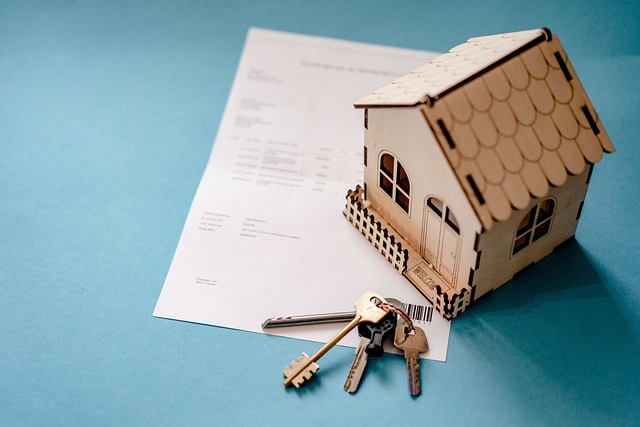Home Value Explained: Key Factors & Appraisal Methods
Discover what drives home value and how experts measure it. This guide breaks down appraisal methods, comparative market analysis, online estimators, and market forces that affect property worth. Learn practical steps homeowners can take to boost value and why professional valuations matter in real estate decisions.

Understanding the true value of a home is essential whether you plan to buy, sell, refinance, or simply manage your largest asset. Home valuation combines objective data, professional judgment, and market dynamics. Below is a practical overview of the common approaches used by industry professionals, the role appraisals play, the limits of online tools, and actionable ways homeowners can increase property value.
How real estate professionals establish a home’s worth
Real estate experts rely on several established valuation methods, often using more than one to arrive at a reliable estimate.
Comparative Market Analysis (CMA): Agents compile recent sales of similar properties nearby—often called “comps”—to gauge a fair market price. They consider size, age, location, lot characteristics, and recent improvements. A CMA reflects current buyer behavior and local trends, making it a popular tool for setting listing prices.
Cost Approach: Appraisers estimate what it would cost to rebuild the property from scratch, then subtract depreciation for age, wear, or obsolescence. This method is particularly useful for unique properties or new constructions where comparable sales are scarce.
Income Approach: Used mainly for rental or investment properties, this method converts expected rental income into a valuation using capitalization rates or discounted cash flow models. It’s ideal when the property’s value is driven by its ability to generate income rather than comparable sales.
Combining these approaches gives a more complete picture. For example, a lender may weigh the CMA heavily but verify with an appraisal that incorporates cost and market nuances.
The importance and process of a professional appraisal
An appraisal is a formal, independent estimate of market value conducted by a licensed or certified appraiser. Lenders require appraisals to confirm that the property provides adequate collateral for a mortgage. During an appraisal, the professional inspects the home’s condition, measures living area, evaluates improvements, and researches recent sales of comparable properties.
The written appraisal report summarizes findings and explains the reasoning behind the final value. Because appraisers follow standardized methods and ethics, their reports are viewed as unbiased assessments. For buyers and sellers, an appraisal can validate or challenge asking prices; for homeowners, it provides a baseline for refinancing or tax assessments.
Are online tools reliable for valuing homes?
Online estimators, such as automated valuation models (AVMs), offer quick, free ballpark figures by analyzing public records, recent sales, and property attributes. They’re useful for estimating broad value ranges and tracking trends, but they have limits.
AVMs can miss important details: recent renovations, unique floor plans, local school or neighborhood changes, structural issues, and small property features that affect desirability. Accuracy varies by market—suburban areas with lots of transactions tend to yield better results than rural or heterogeneous neighborhoods. Treat online estimates as a starting point; follow up with a CMA or professional appraisal when precision matters.
How market conditions influence property prices
Real estate values reflect broader economic conditions and local supply-and-demand dynamics. Key drivers include:
- Inventory and demand: Low housing supply with high buyer interest pushes prices up; excess supply can depress values.
- Interest rates: Lower mortgage rates increase buyer affordability and can elevate prices; higher rates typically cool demand.
- Employment and income levels: Job growth and rising wages support stronger housing demand in a region.
- Local developments: New infrastructure, retail centers, transit, or zoning changes can boost nearby home values—or, conversely, reduce them if negative impacts occur.
Because markets are fluid, values can change quickly. Monitoring trends and local indicators helps buyers, sellers, and investors make timely decisions.
Practical steps homeowners can take to increase value
Homeowners can influence their property’s attractiveness and resale price through targeted strategies:
- Renovate strategically: Upgrades in kitchens and bathrooms generally yield high returns. Focus on modern, durable finishes that appeal to broad buyer groups.
- Maintain the property: Regular upkeep prevents value erosion. Address roofing, foundation, and plumbing issues before they become costly liabilities.
- Improve energy efficiency: Adding insulation, upgrading windows, or installing efficient HVAC systems can attract buyers and reduce operating costs.
- Boost curb appeal: Landscaping, exterior paint, and a tidy entrance make strong first impressions that shape perceived value.
- Add functional space: Finished basements, flexible home offices, or well-executed additions can increase usable square footage and marketability.
Cost-effectiveness matters: prioritize projects that yield measurable value increases in your market.
| Valuation Method | Best for | Key Considerations | Typical Use |
|---|---|---|---|
| Comparative Market Analysis (CMA) | Most residential listings | Recent local sales, condition, upgrades | Listing price guidance |
| Cost Approach | Unique or new builds | Replacement cost minus depreciation | Specialized properties |
| Income Approach | Rental/investment properties | Rental income, vacancy rates, cap rates | Investor valuations |
All cost and price estimates above are illustrative and will vary by location, property condition, and service provider. Consult a professional for precise pricing and cost assessments.
Final thoughts
Understanding how home value is determined empowers better decisions, whether you’re selling, buying, refinancing, or investing. Online tools and agent CMAs provide useful context, while licensed appraisals offer the most defensible value for lending and legal purposes. Stay informed about local market conditions and invest in maintenance and strategic upgrades to protect—and possibly increase—your home’s worth over time.






